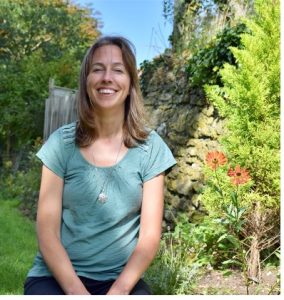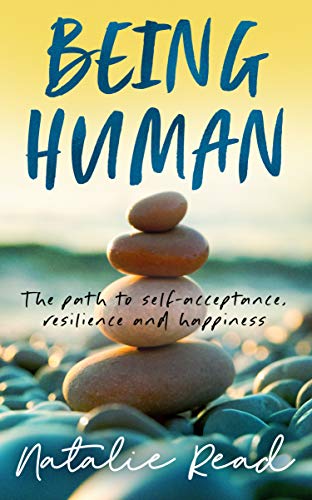
Subconsciously you weave expectations of how these outcomes might look – you might have a particular promotion, new partner or ideal appearance in mind. Without realising, you might be setting yourself up for an outcome that is win/lose, success/failure, good enough/not good enough. This of course can have a profound impact on your mood, confidence and identity.
So how can you set New Year’s resolutions that bring positive situations into your life but also helping you to have more happiness, confidence and resilience as well as improve your mental health and well-being? I believe the answer to this is found in a path of self-acceptance.
If you’re working towards your goals without working towards self-acceptance, you’re likely to be placing conditions on your happiness or success. This is likely to be subconscious, originating from experiencing painful situations in the past such as rejection or failure. As a result, you may naturally try to avoid similar situations in future or try to guarantee more positive ones. The resulting strategies you may have adopted are typically ineffective and come with unhelpful side-effects. E.g. strategies such as overworking, perfectionism, keeping small, over pleasing and so on. The attempt to control happiness and success, however well intended, is at the very heart of the problem and as it’s subconscious, you miss the opportunity to evaluate its effectiveness.
You might assume that happiness or success comes from working to perfection, being like somebody else entirely or from constantly striving to do more. Experiencing challenges, setbacks and difficult emotions can feel like something to berate yourself about or, an indication that you’re on the wrong track. You may imagine that others fare better than you in life. All of these beliefs add additional layers of shame, self-criticism, frustration, despair or other similarly difficult feelings on top of the emotions you’re already facing from the setback. This means overcoming any difficulty, is likely to take longer and feel more onerous.
If you’re working towards self-acceptance, you’re more likely to take a longer term view of happiness or success. You recognise that difficulties, “failures” and setbacks may be part of the process to reaching this. Rather than an indication that something’s gone wrong, they might be just the thing to help you. Instead of a defined outcome in mind, you recognise a broader definition of success/happiness – what you’re learning, the progress you’re making, what you’re strengthening in yourself and how you are helping others in the process. Much richness and opportunity can be missed if only measuring yourself on the end goal. Fixating only on an outcome, negates all of this and can block your progress.
Self-acceptance is learning to appreciate that you are good enough just as you are. You recognise that as a human being, you have both “good” and “bad” attributes, strengths and opportunities for growth. That no one person is likeable/attractive to everyone or great at everything – we all have unique talents that are naturally suited to some tasks or vocations more than others. It’s more likely that your acceptance of yourself radiates a confidence that is magnetic and attractive to others rather than any particular physical attribute. You recognise that life has ups and downs, brings “success” and “failure” and that this is true for everyone, even despite appearances to the contrary. Setbacks happen to everyone and present an opportunity to learn something new, grow or change direction, rather than being a reflection of your identity or luck.
Self-acceptance doesn’t mean that you like yourself all of the time but that you are less likely to dwell on difficulties and setbacks. When you have a mind-set of self-acceptance, your New Year’s resolutions are coming from the perspective of enhancing and growing who you are. It’s not about fundamentally changing who you are otherwise you are creating layers of rejection, self-criticism and possibly self-loathing in the process. The work is the opposite of what you might think. It’s not striving to be better, more or different because you are not enough but rather removing the barriers to believing this. Your successes and achievements are the icing on the cake and more likely as you can overcome setbacks more easily. You’re also more likely to magnetise compatible opportunities. The path of self-acceptance is a path towards happiness with greater odds of success. It helps you to feel more empowered, build confidence and self-esteem, and strengthen your resilience as well as improving mental health and well-being.
 About the author
About the authorNatalie Read is a counsellor, working with university students and in private practice, with a background in the corporate world (25 years’ experience in total), and the author of Being Human – the path of self-acceptance, resilience and happiness, now available online as paperback and e-book.
Would you like more happiness, self-confidence or resilience?
Would you like to improve your relationships?
Would you like to manage mental health symptoms or prevent them from arising?
If the answer is yes to any of these questions, this book could help you. Being Human offers a journey of self-discovery to help you find self-acceptance and self-love through a blend of psychology with a mind, body, spirit approach in a language that will appeal to any belief system.
Being Human is written from the heart with a positive and compassionate message, encouraging awareness, responsibility and self-empowerment. It’s full of examples, explanations, exercises and also provides free access to 12 accompanying meditations written to support the material in this book.
Natalie Read has worked at the heart of mental health as a Student Counsellor at a UK University for over 12 years. This book draws on both her counselling expertise and her passionate quest to find peace and happiness through 25 years of self and spiritual development.

